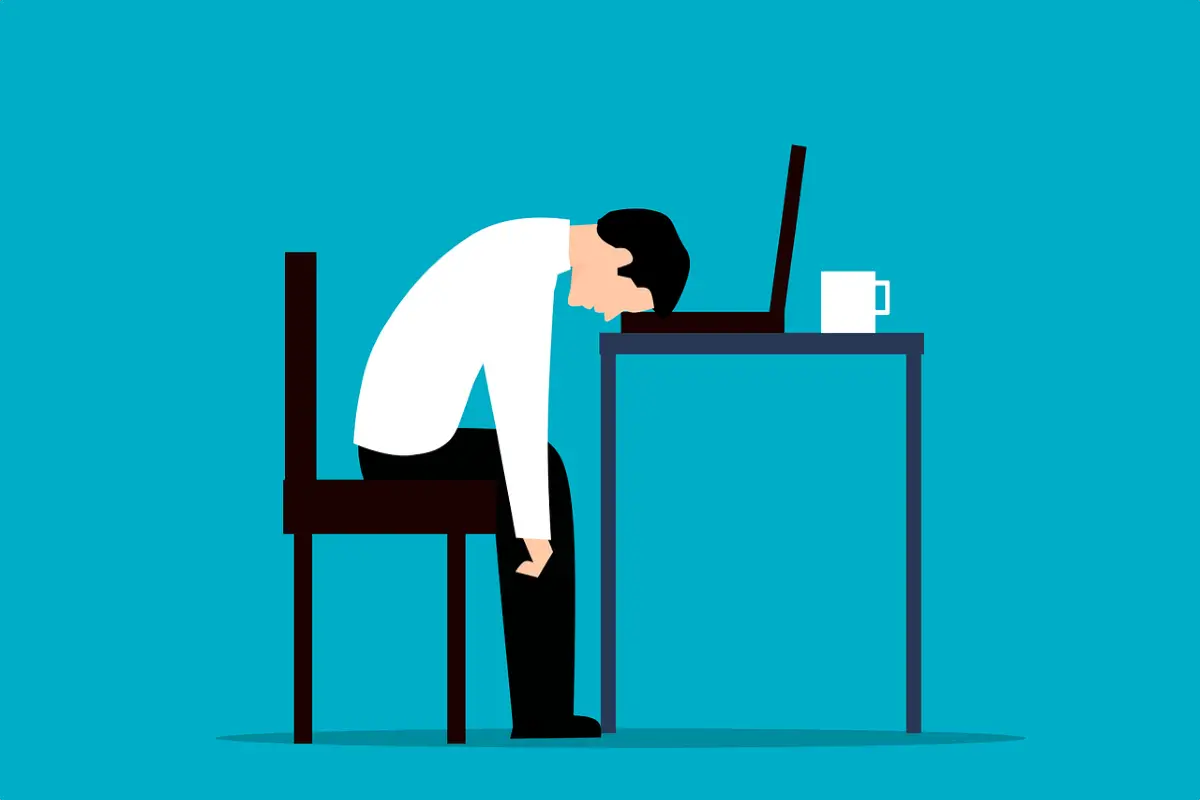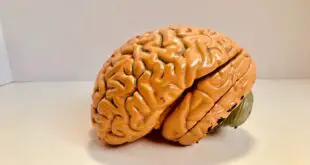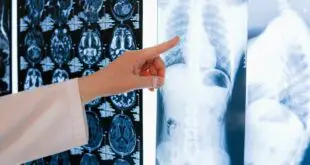There are many causes of sleepiness and fatigue, such as lack of sleep, poor sleep quality, a nutrient deficiency, or an underlying condition. Here are some of the most common reasons why you may feel tired.
Make sure you get enough sleep
If you feel tired throughout the day, the first thing to do is assess whether you’re getting enough sleep each night.
According to the U.S. National Sleep Foundation, most adults should get between seven and nine hours of sleep, while children need more hours depending on age.
However, it is estimated that one in three U.S. adults do not get the recommended amount of sleep.
In addition, the quality of sleep is just as important as the quantity of hours, said Rajkumar Dasgupta, assistant professor of clinical medicine at the Keck School of Medicine at the University of Southern California.
For example, sleep apnea can cause intermittent sleep that prevents reaching deeper, restorative phases; and leads to excessive daytime sleepiness.
When I needed to write my papers, I found interesting materials by Stephanie Stahl, a sleep medicine doctor at Indiana University Health. He said sticking to a routine can help fix a lack of sleep or poor sleep quality.
Our bodies operate on an internal clock that regulates organ function, so maintaining regular cycles, such as sleeping and waking simultaneously, helps regulate this internal clock.
Note: Disrupting your internal clock or circadian rhythms can result in less restful sleep cycles, making you tired.
“If your sleep pattern changes frequently, your body won’t know when it’s supposed to be awake or when it’s supposed to be asleep, and other bodily functions may become unbalanced as well,” Stahl said.
This is especially important if you have an unusual schedule, such as working night shifts. Some studies have found that night work can be detrimental to health and may increase the risk of cardiovascular disease.
“Many night shift workers have been able to reset their internal clocks and adapt to their schedules by following the same routine each day and reducing light exposure to create a dark, nocturnal environment when they sleep during the day,” Stahl said.
Improve diet and nutrition
If you’re not getting enough nutrients or drinking enough water, that may be part of the reason you always feel tired. You may need to modify certain parts of your diet if you want to increase your energy:
Calories
Limiting food intake to less than 1,000 calories a day can boost your metabolic rate and lead to fatigue due to insufficient energy levels.
The U.S. Department of Health recommends that adult men consume between 2,000 and 3,000 calories a day; and adult women between 1,600 and 2,400, depending on their age and level of physical activity.
Protein
Without enough protein, the body is unable to build muscle. This can cause simple activities like going for a walk to lead to fatigue.
A study found that older adults who did not consume adequate amounts of protein were nearly twice as likely to have difficulty climbing stairs or walking.
The recommended daily amount of protein is 0.8 grams per pound of body weight, which translates to 55 grams daily for someone weighing about 68 pounds.
Refined carbohydrates
These can be white flour, white bread, pasta, white rice, and many breakfast bowls of cereal. These grains and sugars lack nutrients and fiber for slow digestion.
While eating refined carbohydrates may give you a temporary energy boost, they will leave you feeling drained later.
Your body releases insulin to lower your blood sugar levels when you eat refined carbohydrates, and that release causes a sudden drop in blood sugar, which can make you feel tired.
Dehydration
When you don’t drink enough water, your body loses fluid, decreasing blood volume.
“This puts extra pressure on the heart to carry oxygen and nutrients to all the muscles and organs, which can lead to fatigue”, said Ben Smarr, assistant professor of bioengineering and data science at the University of California, San Diego.
The amount of water needed daily varies from person to person, but on average, men should drink about 15 and a half glasses of water, and women about 11 and a half glasses.
Exercise regularly
The intensity and type of physical activity each person needs to feel energized depends on many individual factors, Smarr said.
For example, one study found that low-intensity exercise (such as walking) reduced fatigue symptoms by 65% in sedentary people who regularly suffer from fatigue. This activity was even more effective than moderate-intensity exercise.
Note: The time you exercise does not necessarily make a difference in the energy levels throughout the day, but staying consistent with physical activity can help reduce fatigue.
Smarr said that lack of physical activity could also make someone feel tired, especially after eating, since that’s when blood sugar spikes.
If you remain sedentary, those sugar levels will stay high, inhibiting the body’s ability to convert blood glucose into cells for energy.
“The mere act of standing up for a few minutes after a meal radically shortens the amount of time sugar will be in the blood,” Smarr said.
While you don’t need to do intense exercise after eating, just moving around a bit can help stabilize your blood sugar and reduce that sluggish feeling associated with high blood sugar.
Consult with your doctor about underlying medical conditions
These underlying conditions can make you feel tired:
Chronic fatigue syndrome
It is characterized by extreme fatigue and drowsiness that interfere with daily life.
This disorder affects more women than men, and it is most common in perimenopause when women in their 40s and 50s experience a decline in reproductive hormones.
Pregnancy
Hormonal changes during pregnancy mainly increased progesterone levels, can cause sleepiness.
Fatigue is much more common during the first trimester, although some women experience it throughout pregnancy.
Anemia
This is a deficiency of red blood cells or hemoglobin.
Without enough hemoglobin in your blood, your muscles and organs don’t get adequate oxygen levels, which deprives them of energy and makes you feel fatigued.
Sleep apnea
Sleep apnea is a disorder that causes interruptions in breathing during sleep.
People with sleep apnea often wake up at night because they have difficulty breathing, resulting in poor sleep and daytime sleepiness.
Thyroid problems
An underactive and overactive thyroid can affect sleep quality and contribute to feelings of fatigue, said David Cutler, a family physician at Providence Saint John’s Health Center.
Fatigue is a common symptom in someone with an underactive thyroid, but an overactive thyroid can also increase heart rate, making it difficult to sleep.
Diabetes
Poorly controlled diabetes can affect sleep quality because if blood sugar is high, the person will have to urinate frequently, which can interfere and make it difficult to sleep, Cutler said.
Fatigue is also a common symptom of high blood sugar levels.
Talk to an expert about your mental health
If the problem isn’t physical, it may be mental. At night, stress can disrupt sleep, which can cause daytime sleepiness, Dr. Dasgupta said.
Prolonged periods of stress can also contribute to fatigue and exhaustion.
Additionally, fatigue is a common symptom of depression, and both depression and anxiety can make it difficult to fall asleep at night, Dasgupta said.
This cycle can perpetuate itself, as lack of sleep can worsen depression and anxiety.
Talk to your doctor if you think your fatigue is associated with depression or anxiety. A professional can discuss medication options or help you make lifestyle changes to improve your sleep.
What to remember?
The feeling of being constantly tired is most likely due to poor sleep quality and timing.
Therefore, ensure you get seven to nine hours of sleep a night and stick to a regular sleep schedule.
However, for some people, fatigue may be due to dehydration, high consumption of refined carbohydrates, or stress. It could also be from underlying health problems such as sleep apnea, anemia, or a thyroid disorder.
If you find that you are still tired after exercising, getting extra sleep, and eating a healthy diet, it is recommended that you contact your doctor for care to help determine the cause.
 Being Human
Being Human





